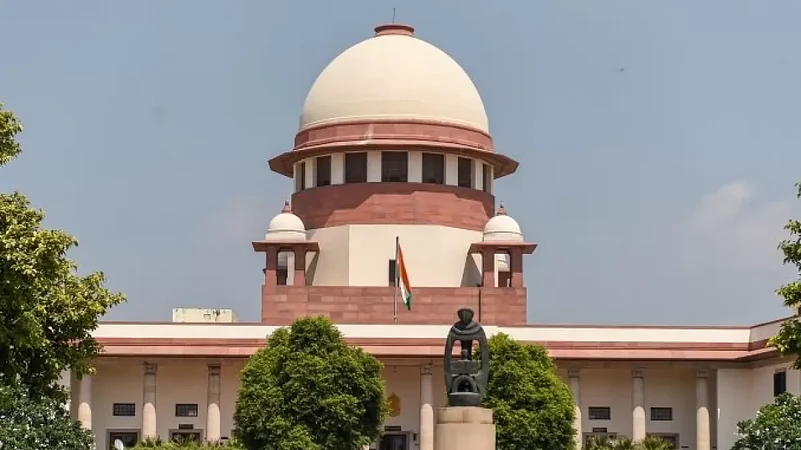The Supreme Court on Wednesday ordered a common compilation of submissions be filed by both the parties in a petition by Delhi government challenging the central government's law establishing pre-eminence of the lieutenant governor over the elected AAP dispensation in controlling services in the national capital.
A bench comprising Chief Justice D Y Chandrachud and justices J B Pardiwala and Manoj Misra was urged by senior advocate Abhishek Singhvi, appearing for the Delhi government, that the matter be listed before a five-judge Constitution bench for urgent hearing.
“I can't express the agony of the (Delhi) administration,” the senior lawyer said.
“There are older Constitution bench matters. We are listing and there are two seven-judge bench matters also coming up. All these are also important and are pending for years,” the CJI said, adding it may be listed after some time.
The bench, however, asked Singhvi and Additional Solicitor General Sanjay Jain to sit together and decide the legal questions to be decided by the Constitution bench in the services row.
“We will appoint Shadan Farasat as nodal counsel. We will ask for the common compilation to be prepared. Prepare your submissions in four weeks and then you can mention it (for listing),” the bench said.
Earlier, the top court on August 25 had permitted the Delhi government to amend its petition challenging the central government's ordinance establishing pre-eminence of the lieutenant governor over the elected dispensation in controlling services.
Amending the petition became necessary after the ordinance was replaced by a law.
It had taken note of the submissions of Singhvi that earlier the challenge was directed against the ordinance which has now become a law after it was cleared by the two Houses of Parliament and got presidential assent.
"The interim application seeks amendment to the writ petition by which the NCT Ordinance was challenged. Now, it has been replaced by an Act (the Government of National Capital Territory of Delhi (Amendment) Bill 2023). We have heard the counsel.
“The solicitor general says they have no objection. The application for amendment is allowed. The counter-affidavit (reply of the Centre) if any, may be filed within four weeks,” the bench had said.
Parliament recently cleared the Government of National Capital Territory of Delhi (Amendment) Bill 2023, also known as the Delhi Services Bill, that gave the lieutenant governor sweeping control over service matters. After the president gave her assent, the bill became a law.
Prior to this, the top court had referred to a five-judge constitution bench the Delhi government's plea challenging the Centre’s May 19 ordinance which took away the control over services from the city dispensation and set off a fresh tussle between the two power centres.
The Centre had on May 19 promulgated the Government of National Capital Territory of Delhi (Amendment) Ordinance, 2023 to create an authority for transfer and posting of Group-A officers in Delhi.
The Aam Aadmi Party (AAP) government termed it a "deception" with the Supreme Court verdict on control of services. The matter is still pending in the Supreme Court.
Before the ordinance was promulgated, a five-judge constitution bench headed by the Chief Justice, in a unanimous verdict, had sought to put an end to the eight-year-old dispute between the Centre and the Delhi government triggered by a 2015 home ministry notification asserting its control over services, holding the National Capital Territory administration is unlike other union territories and has been "accorded a 'sui generis' (unique) status by the Constitution.
Against the backdrop of frequent run-ins between the AAP government and the lieutenant governor, the apex court had asserted an elected government needs to have control over bureaucrats, failing which the principle of collective responsibility will be adversely affected.
The new law has envisaged a National Capital Civil Service Authority for transfer, posting and disciplinary proceedings against Group-A officers from the Delhi, Andaman and Nicobar, Lakshadweep, Daman and Diu and Dadra and Nagar Haveli (Civil) Services (DANICS) cadre.
The chief minister is one of the three members of the Authority, while two others are bureaucrats. The decisions by the Authority are to be taken by a majority and, in the event of a dispute, the matter will be referred to the LG whose decision will be final.
Transfer and posting of all officers of the Delhi government were under the executive control of the LG before the May 11 top court verdict.


























